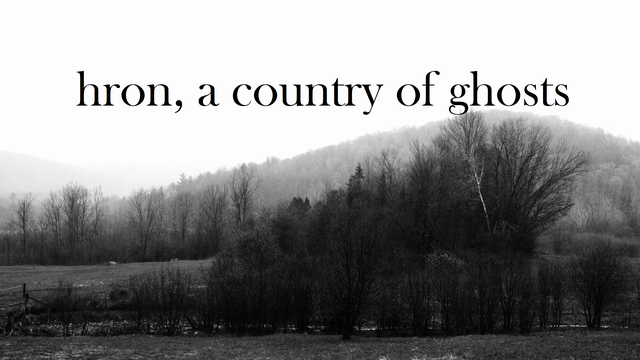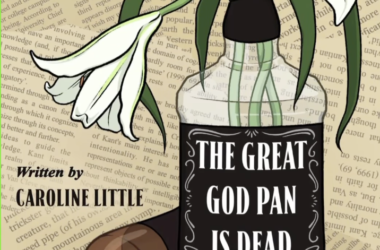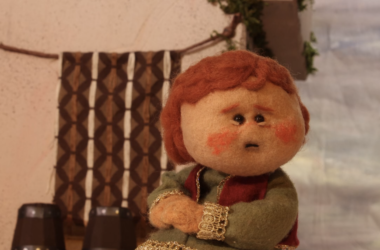Hron, A Country of Ghosts, a new independent film from director dani Tardif, is a self-described anarcho-queer sci-fi movie about love and war. The film centres on Dydo Horacki (Noé Larose), a journalist who is assigned to a military camp to cover the expansion efforts of the fictional Borolian Empire, an imperialist regime intent on domination. After writing an article that criticizes the war effort, Dydo is sent by the militia’s commander to accompany some soldiers on a dangerous mission. Realizing too late into the expedition that they were set up, the party is attacked and Dydo is taken by one of many militia groups that reside in the mountains. Herein lies the twist: The “captors” quickly make it clear that they aren’t taking Dydo as a prisoner. They do not seem interested in pointless cruelty. Instead, they give Dydo the option to be left behind, but for lack of a better option, the journalist joins them.
Drawing inspiration from Michel Foucault’s idea of heterotopias—spaces which exist within but apart from the contexts that surround them, and as such reveal hidden values of the cultures they exist in—the bulk of the film’s 60-minute runtime juxtaposes this small group of anarchists with the violent imperialist state. The anarchists, who refer to themselves as the Free Company of Mount Heather, are depicted as warm and authentic. The imperialists are not. It is a clever political twist on the classic sci-fi war epic: Rather than having democratic rebels try to take down an autocratic empire, socialist anarchists attempt the coup. However, this film is more interested in the political battles taking place than the physical ones.
For the rest of the film, we are treated to a look into the life of this free collective. The viewer is invited to imagine a classless, genderless society where decision making is shared. There are many overt critiques of capitalist hierarchies throughout the film, but the subtle digs are the most effective. For example, Dydo reacts with childlike disbelief when they learn that people choose to work freely to benefit their collective. Coming from the empire, Dydo has only understood work as the product of coercion by a superior. Hron, A Country of Ghosts plays as a social critique simply by showing the merits of its subject: The confederation, unlike the Empire, is very, very good.
Though the film prides itself on tidy politics, core elements of the story that would have strengthened Hron‘s impact are sadly absent. The relationships between characters are what drive the film, but they lack conflict and tangible development. The close bonds that form between Dydo and the militia members develop for no discernible reason beyond narrative convenience, and the viewer has no cause to root for these characters. Many of them are given extended and intimate monologues over the second half of the film, but their emotional impact is limited by the lack of narrative development. The film privileges its political message over traditional storytelling techniques; which is ultimately unfortunate.
The film does a good job with costumes and setting, and manages to create a distinct universe in an impressively short span of time. The ski masks, bandanas, and ragged clothes of the anarchists immediately register as rebellious as well as being of this planet, while the imperialists’ orderly and uptight outfits are classically sci-fi. Attention is drawn to the dress frequently, and watching both kinds on screen at once makes this sci-fi feel timeless and distinct.
The film’s crew introduced the work suggesting that although something is not perfect, that doesn’t mean it is not worth making. There are merits in the film’s production, acting, and design—and there is a charm and depth to the rogue politics on display that makes the film work as a conceptual piece examining the effects of politics on interpersonal relationships.
Whether or not you agree with its message, the film has an unabashedly independent spirit. And it’s a welcome breath of fresh air from whatever has been clogging up your Netflix queue.









